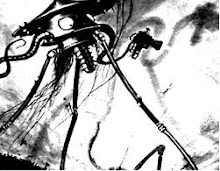Constitutionality of RIAA Lawsuits Being Challenged
Joel Tennenbaum is currently being sued by the RIAA for having 7 songs in a shared folder when he was 17 years old. Tennenbaum is now in his 3rd year of graduate school. The RIAA is asking for damages amounting to more than $1,000,000.
Charlie Nesson is representing Tennenbaum and challenging the constitutionality of such lawsuits in the hope of stopping any similar lawsuits in the future. If successful, individuals who have shared music in a personal, noncommercial fashion could no longer be targets in the RIAA's sights.
Nesson and Tennenbaum were interviewed by David Weinberger, Harvard law professor, yesterday. Nesson lays out the grounds on which the lawsuits are being challenged. He makes the comparison between file-sharers today and radio broadcasters in the '50s; both individuals engaged in a similar activity -- sharing music for free. The difference, Nesson points out, is that the broadcasters were given payola, while file-sharers are sued ridiculous amounts of money. He also states that the RIAA's tactics are constitutional because they are a private company using the federal court system to enforce civil lawsuits through coercion, threats, and fear, amounting to extortion tactics.
Both Nesson and Tennenbaum recognize and articulate the concept that the music industry has decided to fight against file-sharing and digital technology in order to continue using their old business model rather than embrace these new technological and cultural changes by adopting a new business model.
I'll be watching their case to see how it develops.


